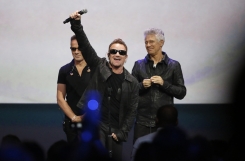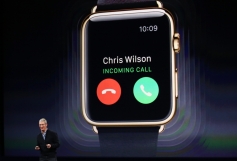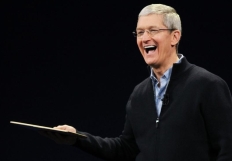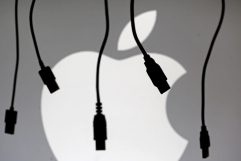Genius is supposed to be a rare thing. Yet in the case of Steve Jobs, the new biopic of the late Apple computing pioneer, it's apparently everywhere you look. Beyond the film's subject matter – a man seen as one of the most remarkable innovators of the last 100 years – it also involves the precocious talents of director Danny Boyle and the peerless screenwriting of Aaron Sorkin. In the cast, Michael Fassbender, fast becoming regarded as one of the leading actors of his generation, is paired with the Oscar-winning Kate Winslet in the key roles of Jobs and his right-hand woman Joanna Hoffman. Mercurial talent abounds; genius is cheap.
Or rather it seems, genius loves company. Fassbender, Winslet, Sorkin and Boyle have all been drawn to the opportunity to depict one of the defining figures of the digital revolution on screen. They do so through a three-act format that wouldn't be out of place in the theatre, telling the story of the definitive 15 years of Jobs' career through three of his now-famous product launches. But before you imagine this is a tale just for the sorts of tech-heads who continue to log on to watch the latest iPhone being unveiled, fear not. Sorkin has selectively drawn from the source material of Jobs' biography and his own interviews with the people who knew him best to create a rich story about much more human things.
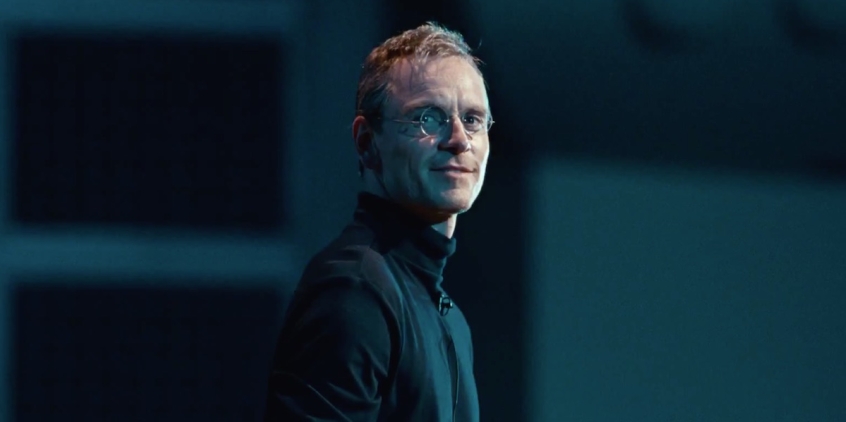
Most notably, that means a focus on Jobs' relationship with his daughter Lisa, whose parentage he initially disputed. While each of the three episodes revolves around a new computer, really the thing we care about is their faltering relationship. He's a father who struggles with the idea of fatherhood partly due to his own abandonment and adoption as a child; "I'm badly made", he says poignantly at one moment. Sorkin uses this as a key to unlock Jobs' complex and hard-to-like character, a way of understanding the control freak whose greatest character flaw was also what made him so effective.
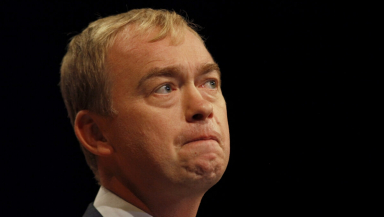
Despite Fassbender's pure presence in the role, it's incredibly hard to root for Jobs, and at times the audience is thankful for Winslet's turn as an actual functioning human being. As much as it occasionally drifts too close toward iWorship, the film is clear that the one thing Jobs wasn't was a Nice Guy. Sorkin, Boyle and Fassbender portray him as a brilliant monster; a man who achieves some of the most extraordinary breakthroughs in modern technology at significant cost to the other humans who had to live through them with him. Like a spy movie which theorises that awful things are permissible for the sake of the Greater Good, Steve Jobs illustrates that while geniuses might believe they're God – and at times he arguably thinks he is – they're far from perfect.
That's true too of the film itself. Despite the collective brilliant of the cast and crew and the fascinating subject matter, somehow Steve Jobs the movie never manages to transcend the sum of its extraordinary parts. It is admirably disciplined about the story it wants to tell (there's no reference or even hint toward the cancer which ended Jobs' life), the sparkling script still struggles to make us truly care about what's going on. We know it's historically important, but the story of a man getting rich while making cool computers just doesn't have that much of an emotional pull.
Apple fans will love Steve Jobs the movie just as they idolise Steve Jobs the man; while it's not strictly the film about computing that one might imagine, there are plenty of knowing nods and references for the tech-savvy viewer. Ultimately though, Sorkin's clever attempt to tell the enormous story of Jobs' life and impact on the world through three theatrical episodes feels a little unfulfilling. Even the key story through which Jobs' character is revealed – his relationship with his daughter – isn't satisfactorily resolved, and the whole film feels like it ends suddenly and much too soon. Given that it's the Steve Jobs story, that's quite an irony.
Martin Saunders is a Contributing Editor for Christian Today and the Deputy CEO of Youthscape. You can follow him on Twitter: @martinsaunders











